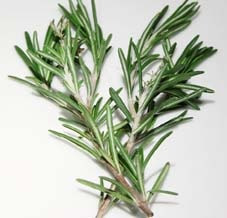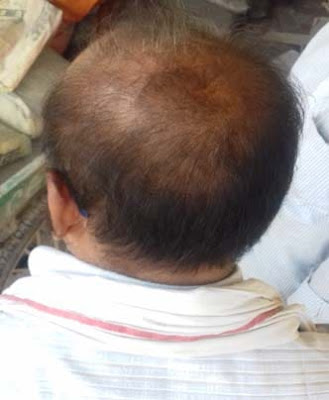What is alopecia areata/Hair Fall/ Hair Loss?
Alopecia areata is an
acquired skin condition that known by many names in the medical or nearby language such as Hair fall, Hair Loss, Baldness,
Sarganj, Khalitya, Indralupta etc. This
is a common autoimmune scalp disease in which hair fall occurs because of a
mistaken attack of the immune system on the hair follicles. Generally, it
causes small sized and coin-shaped patches on the scalp region but when the whole scalp is influenced then it is called
Alopecia totalis and involvement of the whole body including scalp is referred
to as Alopecia universalis.
It can influence any
parts of the body and can occur at any age or gender that tend to occur usually
during 30 - 50 years of age. Both sexes can be victims equally. In keeping with
numerous scientific reviews, it impacts approximately 40-50% of individuals all
over the world. However, no proper treatment has been found for alopecia areata till date. Only Ayurveda has the
solution for promoting hair regrowth. Generally, in 80-90% of cases, hair
starts off regrowing spontaneously. However, in some cases permanent baldness
is also observed. Around 4% of people with alopecia areata have a family
history and hereditary attributes.
Other than this, it also
affects toenails or fingernails as well. In continual instances and chronic
cases, the prognosis may be more terrible.
How does alopecia
appear? What exactly are the reasons for alopecia areata?
Genetic
predisposition/Hereditary characteristics, Environmental attributes, Immune
diseases.
Vaccination and
Radiation therapy.
Rapid weight loss,
mental stress, and depression.
Malnutrition/Nutritional
deficiency - Lack of vitamins and nutrients in the diet and not consuming
enough protein and iron as well.
Hairstyling treatments
like Coloring, Straightening, Blow dryering, Frequent combing, Bleaching etc.
Hypervitaminosis A.
Ageing, long sickness,
and infectious diseases.
Pregnancy due to
hormonal changes/Lower level of estrogen and a higher level of androgen
hormone, and Childbirth.
Certain health
conditions like - Diabetes, polycystic ovarian diseases,
hyperthyroidism/hypothyroidism, Addison's disease, acne, scarring, seborrheic dermatitis, major
surgery, syphilis, vitiligo, fungal infection (trichotillomania, tinea capitis,
telogen effluvium etc.), ringworm, bipolar disorder, psoriasis, lice
problem/pediculosis, scalp infection etc.
Injury and environmental
triggers - Exposure to toxic chemicals
and harmful radiation.
Prescribed medicines
such as chemotherapy, oral contraceptives/birth control pills, antidepressants,
antiseizure, anti-inflammatory, antihypertensive, drugs to low cholesterol,
anticoagulants like warfarin and heparin.
What are the Signs & Symptoms of Hair Loss/Alopecia
Areata?
Scalp hair getting short
and thin.
Partial/patchy or
complete hair loss/baldness, diffused hair, fractured hairs, gray or decreased
hair growth.
Male baldness
(androgenetic alopecia).
Sometimes tingling,
itching, or burning sensation in the scalp, including the beard and eyelashes
regions.
Telogen effluvium,
exclamation mark hairs, cadaver hairs, and white hairs.
Nails signs like rough,
thin, and split appearance.
How do doctors diagnose
alopecia areata?
For hair loss diagnosis
the following medical investigations may be done -
Hair pluck test, scalp
biopsy, serum iron, Antinuclear Antibodies (ANA), Total Iron Binding Capacity
(TIBC), Complete Blood Count(CBC), Leutinizing Hormone(LH), Thyroid Stimulating
Hormone ( T3, T4, TSH), Testosterone
level, Follicular Stimulating Hormone (FSH), VDRL (Venereal disease research laboratory), Savin Scale,
Norwood Hamilton Scale, androstenedione, prolactin, Densitometry etc.
Best Diet and Prevention
Tips for Hair loss
- Avoid hair dyes, hairdryer, hair curling, stiff hair stylings like ponytails, braids etc, harsh shampoo, chemical-based hair conditioners, strong rubbing of hairs, and difficult combing.
- Complete bed rest is necessary to try to adopt sound sleep at night time.
- Take vitamin C, vitamin B, vitamin E, calcium, minerals, protein, biotin, iron, zinc-rich foods for hair growth and to make hair more potent and stronger.
- Alcohol drinking may be proved harmful on account of hair loss and should be restricted as soon as possible.
- Some perpetrated foods and drinks like tea, coffee, cola drinks, burger, Chinese dishes, tomato, sugary foods, junk foods, spicy foods, refrigerated foods, and fried foods are responsible for hair thinning so simply make a proper distance from these foodstuffs.
- To take out the toxic substances from the body, drink lots of water.
- Always intake a well-balanced diet and for the good health of the hair and promoting hair growth take the following things strictly -
Green, leafy, and root vegetables like pumpkin, cucumber, curry leaves, winter squash, palak, onions, avocados, beets, beans etc.
- Legumes.
- Dates.
- Raisins.
- Soybean.
- Citrus and dried fruits.
- Bananas.
- Pulses.
- Whole grain cereals.
- Nuts.
- Seeds.
- Sprout.
- Cheese.
- Yogurt.
- Liver, yeast, eggs, fish.
- Avoid intellectual strain, mental stress, and anxiety anyhow and do meditation and exercise routinely. The practice of Yoga, relaxation techniques, meditation may be advantageous because it increases blood flow to the scalp region that protects your hair by making it stronger forever and makes you tension free. Sarvangasana/Shoulder stand pose, Vajrasana/Thunderbolt pose, Bhujangasana Cobra pose, Sarvangasana (Shoulder stand pose), Ushtrasana/Camel pose, Pawanmuktasana/Knee to chest pose, Uttanasana/Bending straightforward pose. Shirsasana/Headstand pose, Anuloma Viloma/Alternative breathing, Shashank asana/Moon pose, Kapalabhati/Frontal lobe cleansing technique etc. can be adopted in a disease called alopecia areata.
- Break the egg and evacuate the internal whiteness (yolk) and mix it with one tablespoonful of olive oil. Now apply this combination on the whole scalp thereafter wash with shampoo after 15-20 minutes.
- Triphalachurna should be utilized for better abdominal health.
- Shirodhara, Ksheera vasthi, Nasya etc. come under Panchakarma therapy and should adopt it under the supervision of a trained therapist because it is very beneficial for head-borne diseases including hair loss or alopecia areata.
What's the Allopathic
treatment for alopecia areata? Can or not it's cured with Allopathic
medication?
There are many medicines
to be had in Allopath but do not longer presents 100% positive results. Some
conditions get cured spontaneously and some end up being
stubborn or tenacious.
Usually, the
prediction might not be correct in the persistent sickness of hair loss.
For the most part, specialist prescribes steroids whether in the form of tablets,
injection, creams or lotions. But most of them cannot be used for a long time due to the possibility of unwanted side effects.
Aside from this, the
topical sensitizers like diphencyprone, squaric acid dibutylester, tofacitinib,
and baricitinib are used to promote regrowth of hairs but benefits are limited.
Minoxidil and Anthralin
are also used but expecting for a 100% well consequence can show to be worthless.
Home remedies to care
for hair loss
For hair regrowth, there
is a different Ayurvedic approach to deal with Baldness. If Allopathic
medicines do no longer deliver the preferred results then go directly to the sanctuary
of Ayurveda. It generally does not only treat hair fall
but also strengthens hair-roots. The names of some medicines are being written down here
which can be used without question in an inclination of hair fall cases.
- The leaves of ginkgo biloba is an Ayurvedic medicine, used for increasing circulation of the scalp as it helps in hair growth.
- Aloe vera is a well known herbal treatment for skin and hair-related conditions. So it is also suggested for hair loss management.
- A couple of curry leaves should be heated by making use of coconut oil. Now apply it on the scalp in the wake of making its cooldown.
- Henna leaves have been used for this disease for a considerable length of time. For this, heat up some henna leaves in mustard oil. Let it cool off and apply on the scalp region after straining it.
- Licorice root powder and saffron powder should be blended in cow milk. Now apply it on the whole scalp for overnight and in the morning, wash it with tepid water.
- Male pattern baldness stops even from washing with neem leaves.
- Onion juice is another substitute for alopecia areata as it possesses sulfur that helps prevent hair fall and promotes hair regrowth.
- Soak the Fenugreek seeds for the whole night and in the following morning make a smooth paste after grinding them. Now apply it in the entire scalp and leave for around an hour then rinse it off with natural Neem cleanser.
Which ayurvedic oils are
utilized as a part of the treatment of alopecia areata?
There are such
a significant number of Ayurvedic oils
available in the market which is utilized as a part of hair diseases including
hair fall but be careful before using anyone. Because the working system of
everyone is different. So, in this way, it is very important to consult an Ayurvedic doctor before
using it. Below is written about some essential oils that increase blood flow of the scalp, help stimulates hair
follicles, builds hair development, expels dandruff, lessens hair thinning,
works as a hair tonic, maintains hair shining and many others.
Bhringaraj oil
Almond oil
Brahmi oil
Amla oil
Shikakai oil
Rosemary oil
Coconut oil
Olive oil
Mustard oil
Cinnamon oil
Lavender oil
Jasmin oil
Vitamin E oil
Sesame seeds oil
Castor oil
Sunflower oil
Cedarwood oil
Other Ayurvedic natural remedies to treat
Alopecia areata
There are so many herbs,
spices, or other substances to be had in your home and kitchen that you likely
won't require the allopathic medicines. What's more, these Ayurvedic
and home remedies are free from side
effects and turned out to be exceptionally successful in hair loss treatment.
 |
| ROSEMARY |
Rosemary - Romero -
Rosmarinus officinalis
Lemon - Citrus limon
Coriander leaves -
Coriandrum sativum
Coconut oil - Cocos
nucifera
Amaranth juice - Tumble
pigweed - Amaranthus albus
Fenugreek seeds -
Trigonella foenum-graecum
Cumin - Cuminum cyminum
Bhringaraj - False daisy
- Eclipta prostrata
Peppermint - Hybrid mint
- Mentha piperita
Jatamamsi - Spikenard -
Nardostachys jatamansi
Onions - Allium cepa
Alfalfa - Medicago
sativa
Spinach - Spinacia
oleracea
Carrot - Daucus carota
Sesame oil - Sesamum
indicum
Lavender oil - Lavandula
- Lavandula angustifolia
Cedar wood - Cedrus
Reetha - Soap pod - Acacia concinna
Olive oil - Olea
europaea
Mustard oil - Brassica
juncea
Lettuce - Lactuca sativa
Henna - Lawsonia inermis
Karanj - Pongamia glabra
Orange peel - Citrus
reticulata
Jasmine - Jasminum
Gotu kola - Centella
asiatica
Brahmi - Bacopa monnieri
Nutgrass - Cyprus
rotundus
Hibiscus leaves - Hibiscus rosa-sinensis
Indrayan - Citrullus
colcynthis
Gunja - Abrus
precatorius
Indian licorice -
Glycyrrhiza glabra
Bakuchi - Psoralea
corylifolia
Daru Haridra - Berberris
asiatica
Bala - Sida cordifolia













No comments:
Post a Comment